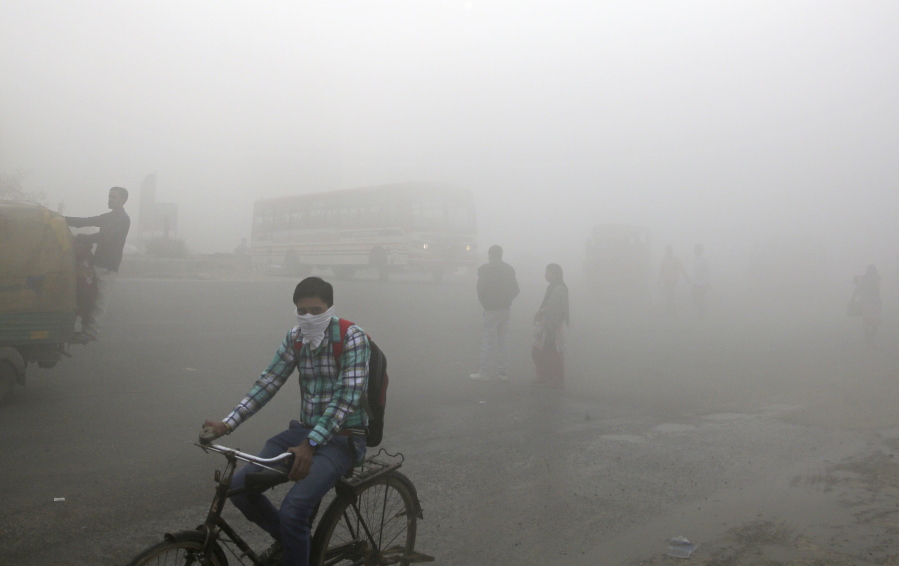NEW DELHI — U.S. oil refineries that are unable to sell a dirty fuel waste product at home are exporting vast quantities of it to India instead.
Petroleum coke, the leftover from refining Canadian tar sands and other heavy crude, is cheaper and burns hotter than coal. But it also contains more planet-warming carbon and far more heart- and lung-damaging sulfur — a key reason few American companies use it.
Refineries are sending it around the world instead, especially to energy-hungry India, which last year got almost a fourth of the fuel grade “petcoke” the U.S. ships, an Associated Press investigation found. In 2016, the U.S. sent more than 8 million metric tons of petcoke to India — about 20 times more than in 2010, and enough to fill the Empire State Building eight times.
The petcoke burned in countless factories and plants is contributing to dangerously filthy air in India.
Resident Satye Bir doesn’t know why Delhi’s air is so dirty, but feels fury and resignation.
“My life is finished….My lungs are finished,” said Bir, 63, wheezing and reaching for an inhaler. “This is how I survive. Otherwise, I can’t breathe.”
Tests on imported petcoke used near the capital found 17 times more sulfur than the limit for coal, according to India’s Environmental Pollution Control Authority. India’s own petcoke, produced domestically, adds to the pollution.
Industry officials say petcoke has been an important fuel for decades, and its use recycles a waste product.
Health and environmental advocates say the U.S. is exporting an environmental problem. The U.S. is the biggest producer and exporter of petcoke in the world.
“We should not become the dust bin of the rest of the world,” said Sunita Narain, a pollution authority member who heads the Center for Science and the Environment. “We’re choking to death already.”
Oil refining is a lifeline in America’s industrial heartland. In northwest Indiana, a refinery and steel mills dominate the Lake Michigan shoreline, and smokestacks still symbolize opportunity.
Workers cheered when the BP Whiting refinery invested $4.2 billion to process crude extracted from Canada’s tar sands.
Dozens of U.S. refineries built units called cokers to process heavy crude into petroleum products, but huge amounts of petcoke remained.
The American Fuel and Petrochemical Manufacturers told AP that cokers “allow the United States to export petroleum coke to more than 30 countries to meet growing market demand.”
But experts say it’s not market forces that are driving U.S. refiners to sell this waste product. They say refineries just need to get rid of it, and are willing to discount it steeply.
“It’s like the Wild West,” said oil analyst Stuart Ehrenreich, who once managed Koch Industries’ petcoke export terminals.
Petcoke is sold around the world. Among the largest traders are Oxbow Energy Solutions and Koch Carbon, led by members of the politically conservative Koch family.
Neither they nor a dozen U.S. oil companies and traders contacted by the AP would talk about petcoke. They cited past controversies over waste storage at Midwest refineries or wanted to avoid angering business partners.
In India, no factory managers would allow AP access, and the country’s federal officials did not respond to interview requests.



